Sunday, September 03, 2023
 Sunday, September 03, 2023
Sunday, September 03, 2023 Elder of Ziyon
Elder of Ziyon Arafat, Ariel Sharon, book review, Ehud Barak, Gidi Grinstein, lost in translation, negotiations, Netanyahu, Oslo Accords, rejectionist, second intifada, Yasser Arafat
Arafat, Ariel Sharon, book review, Ehud Barak, Gidi Grinstein, lost in translation, negotiations, Netanyahu, Oslo Accords, rejectionist, second intifada, Yasser Arafat
Thursday, August 31, 2023
 Thursday, August 31, 2023
Thursday, August 31, 2023 Elder of Ziyon
Elder of Ziyon 2000, Akiva Bigman, Camp David, democracy, Ehud Barak, judicial reform, Mida, Netanyahu, Oded Eran, Oslo Accords, protest, second intifada
2000, Akiva Bigman, Camp David, democracy, Ehud Barak, judicial reform, Mida, Netanyahu, Oded Eran, Oslo Accords, protest, second intifada
Ehud Barak is a central figure in the protest movement against judicial reform. If you have been following the media, you may get the impression that although he is adamantly against Netanyahu and judicial reform, he is merely providing commentary and interpreting events. The reality is the opposite. Do not be deceived by his age or because he is a former prime minister and supposed elder statesman. At 81 years old, Barak is one of the main architects behind the current mass demonstrations. Yet, his involvement goes deeper. Barak is not only orchestrating today’s mass demonstrations, he has been integral in forming the anti-Bibi movement over the past seven years.Recently, a chilling video of a Zoom conversation was circulated in which Barak describes a scenario of how he will return to power. He mentions that he has a friend, a historian, who told to him that he will become Prime Minister again when there are “bodies floating in the Yarkon river” of Jews murdered in a civil war. Barak immediately said that this should never happen. Yet, that he would mention such a grotesque idea, a truly horrifying scenario is disturbing. Moreover, this comment was made to a forum whose whole raison d’être is to get rid of Netanyahu and explore ideas on how to implement such a plan. Perhaps this was a slip of the tongue, or maybe it was said by someone whose purpose in orchestrating these protests is about his own return to power.
Nonetheless, the Zoom conversation video containing the “bodies in the Yarkon river” comment actually occurred in 2020 during the Corona pandemic, years before judicial reform became a legislative issue. Meaning, the notion that it is specifically judicial reform that is bothering Barak, or the people he is guiding, is bogus. And the fact that Barak was having conversations with those who raised the idea of mass civil disobedience only serves to reinforce Barak’s role in guiding these protests.
Barak's words in the 2020 video sure sounds like a blueprint for the protests happening today, especially using the word "democracy" as a slogan.
But he had been saying the same thing since 2016:
These are Barak’s words at the Herzliya conference, pay attention to the recurring motifs that he still talks about today:
“We have been led for more than a year by a prime minister and a government that is weak, limp and all talk, even according to senior members of its coalition, deceitful and extremist, that fails repeatedly, in guaranteeing security, undermining the fabric of democracy in Israel, failing in managing diplomatic relations with the United States and in stabilizing Israel’s position in the world… Here, I call on the government to come to its senses and immediately get back on track. If you don’t do that, we will all have to get up from our comfortable and less comfortable seats – and overthrow it, through a popular protest and through the voter’s ballot – before it’s too late.”
These are the components of Ehud Barak’s second political comeback: de-legitimization of the government, a deep animus towards Bibi and therefore the slogan ‘anything-but-Bibi’, and mass demonstrations.
Bigman's article goes on to bring other evidence to bolster this thesis.
Could this be true?
I am reading a pre-release edition of "(In)sighrs: Thirty Year of Peacemaking in the Oslo Process" by Gidi Grinstein. Grinstein was the secretary and youngest member of the Israeli delegation at Camp David in 2000 and his book is an account of the negotiations at the time. He worked for the Barak government during his premiership and famously used the Heimlich maneuver when Barak was choking at Camp David.
Grinstein loves Ehud Barak. He was "blown away" by Barak's speeches. He describes him as "the smartest man in the room" who manages to break down complex problems into a "matrix" of small tasks. He describes Barak's political brilliance in building a coalition as well as in his ambitious attempts to accomplish three things in a short time period - a peace deal with Syria, withdrawal from Lebanon whether negotiated or unilateral, and then peace with the PLO, all before Clinton would leave office.
But, whether Grinstein realizes it or not, Barak comes off as a jerk in this book. His "matrix" of things to be done were all in his head and he wouldn't share his strategy or plans with anyone. On the contrary, Barak would instruct his PLO negotiating team to continue their work even as he sabotaged their progress because he wanted to work on the other tracks first. Grinstein admits this: chief negotiator Dr. Oded Eran was a serious expert who led the team, but he was a "pawn in Barak's masterplan" whose hands were politically tied by Barak, and Barak then built his own secret negotiating team, completely leaving Eran out of the loop.
This was hardly the only example where Barak would throw people under the bus because he thought he was the only one brilliant enough to see the big picture - and to maintain his power. There was no chain of command in Barak's government, and the only possible result in such a system is chaos. Grinstein himself admits that one day Barak asked him to leak information to the New York Times, bypassing his boss, and leaving him in an uncomfortable position. Official positions were circumvented by Barak's personal backchannels. No one knew their real roles. Everyone working for Barak was a chess piece for his ambition, not a human being. Barak comes off as a paranoid, power-mad Machiavellian far more than the wise peacemaker Grinstein tries to position him as.
The theory that Ehud Barak is the force behind the protests today in a bid to regain power, when he cannot hope to do so by democratic means, is entirely consistent with the Ehud Barak described in a book that adores him.
|
Or order from your favorite bookseller, using ISBN 9798985708424. Read all about it here! |

|
Wednesday, August 09, 2023
 Wednesday, August 09, 2023
Wednesday, August 09, 2023 Elder of Ziyon
Elder of Ziyon 1995, Area A, Area B, blame Israel, British Mandate, building a state, civilian infrastructure, IMF, malaria, Mohammad Shtayyeh, Oslo Accords, Palestinian State, victimhood, Wafa News Agency
1995, Area A, Area B, blame Israel, British Mandate, building a state, civilian infrastructure, IMF, malaria, Mohammad Shtayyeh, Oslo Accords, Palestinian State, victimhood, Wafa News Agency
The official Palestinian Authority Wafa news agency reports:
Prime Minister Mohammad Shtayyeh today received in his Ramallah office the new head of the International Monetary Fund's (IMF) mission to the West Bank and Gaza Strip, Kerstin Gerling, in the presence of its former head, Alexander Tieman, and IMF Resident Representative Thomas Laursen, during which they discussed the impact of the Israeli occupation on the Palestinian economy."The Israeli occupation is the main obstacle to the development process in Palestine. Israel has employed many tools to control us, whether through direct military occupation of our lands, and control of the borders, crossings, the labor market, and infrastructure," said the Prime Minister.
|
Or order from your favorite bookseller, using ISBN 9798985708424. Read all about it here! |

|
Thursday, July 20, 2023
 Thursday, July 20, 2023
Thursday, July 20, 2023 Elder of Ziyon
Elder of Ziyon Al Quds Brigades, IED, Islamic Jihad, Joseph's Tomb, kill jews, Muslim antisemitism, Nablus, Oslo Accords, Palestinian antisemitism, Shechem, supporting terror
Al Quds Brigades, IED, Islamic Jihad, Joseph's Tomb, kill jews, Muslim antisemitism, Nablus, Oslo Accords, Palestinian antisemitism, Shechem, supporting terror
The Al-Quds Brigades - the Nablus Brigade responded to the storming of the occupation forces and settlers, by firing heavy salvoes of bullets at them and detonating a number of explosive devices in more than one area in the vicinity of Joseph's Tomb.
Al-Quds Brigades, the military wing of the Islamic Jihad Movement in Palestine, confirmed that its mujahideen in the Nablus Battalion repelled, tonight, the occupation forces' incursion into the eastern region of the city and the vicinity of Joseph's Tomb, with heavy salvoes of bullets and explosive devices.The Saraya said in several military reports, "The soldiers of the Al-Mayamin Battalion targeted the occupation vehicles on Al-Hisba Street with heavy bullets, and they were also able to detonate a number of explosive devices in the occupation vehicles on Amman Street and Al-Hisba directly.
|
Or order from your favorite bookseller, using ISBN 9798985708424. Read all about it here! |

|
Sunday, April 16, 2023
 Sunday, April 16, 2023
Sunday, April 16, 2023 Elder of Ziyon
Elder of Ziyon analysis, From the River to the Sea, hamas, Oslo Accords, Seth Frantzman, twitter
analysis, From the River to the Sea, hamas, Oslo Accords, Seth Frantzman, twitter
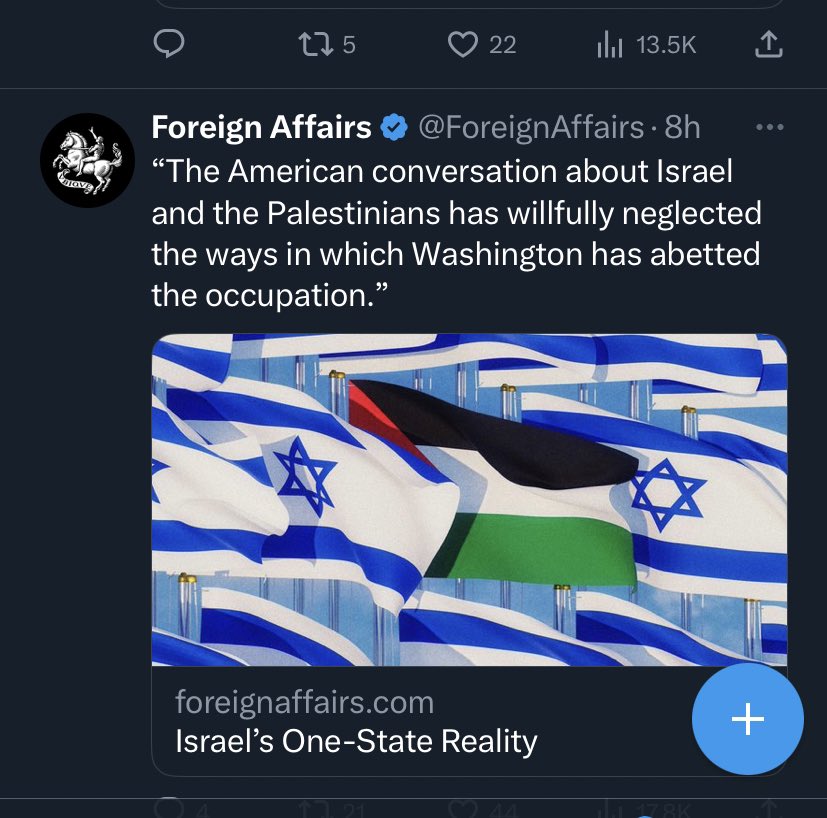
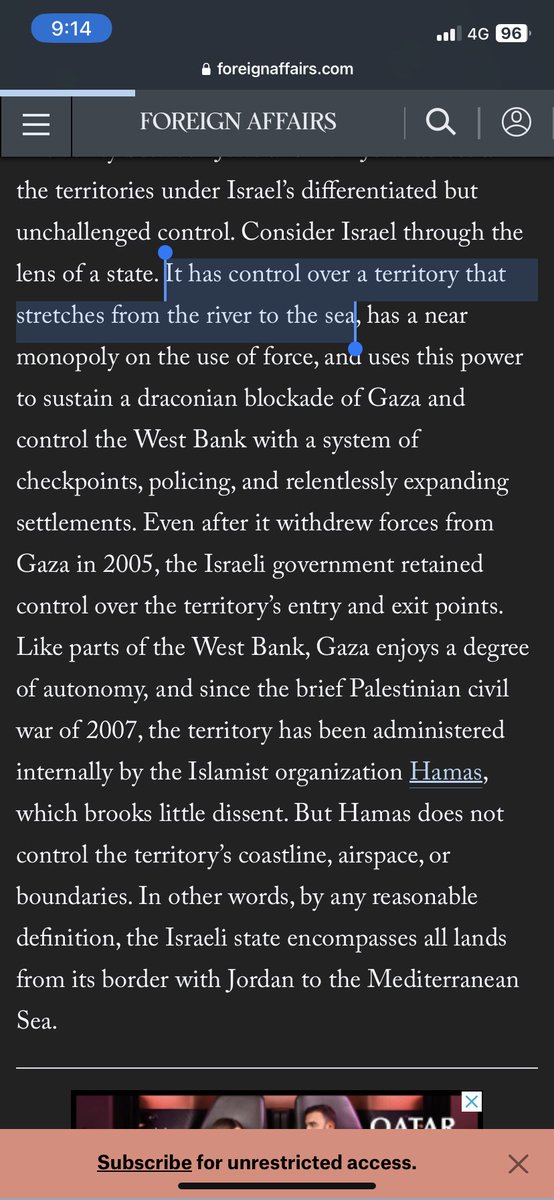
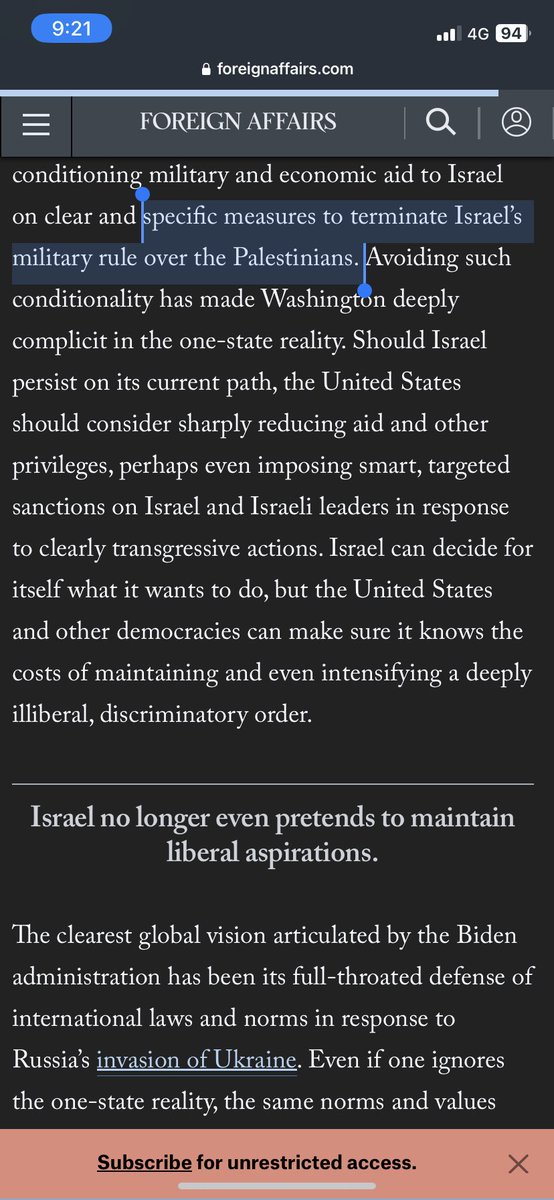
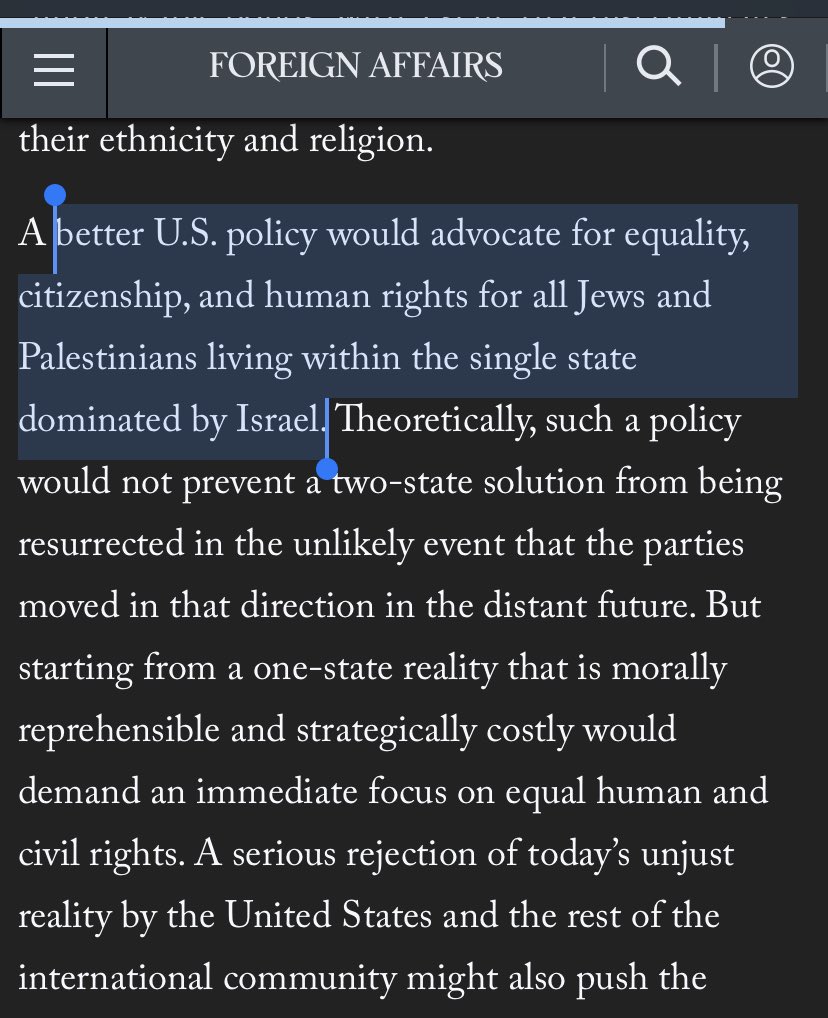

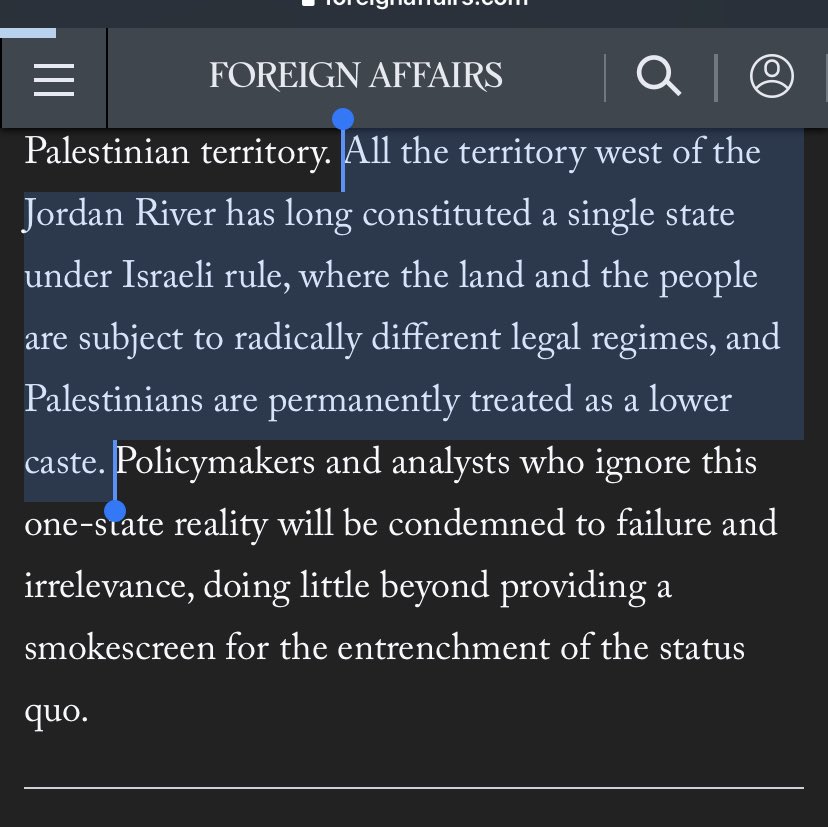
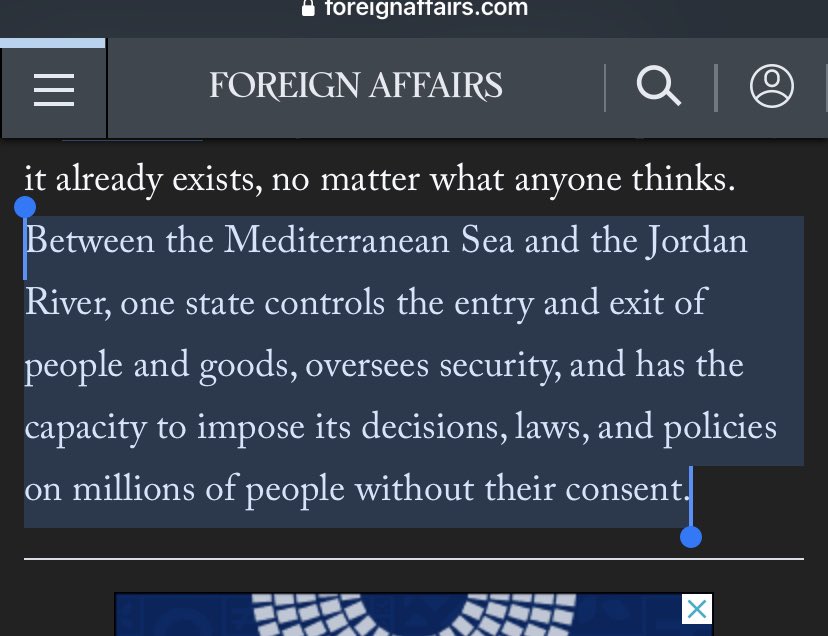
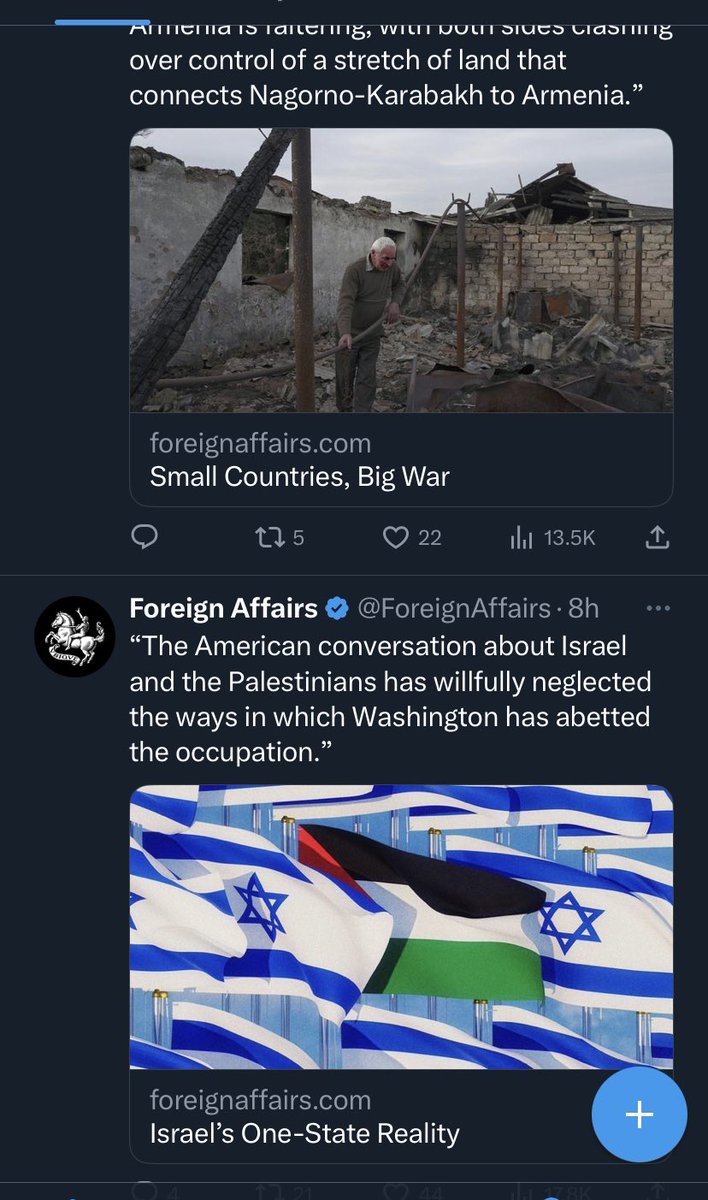
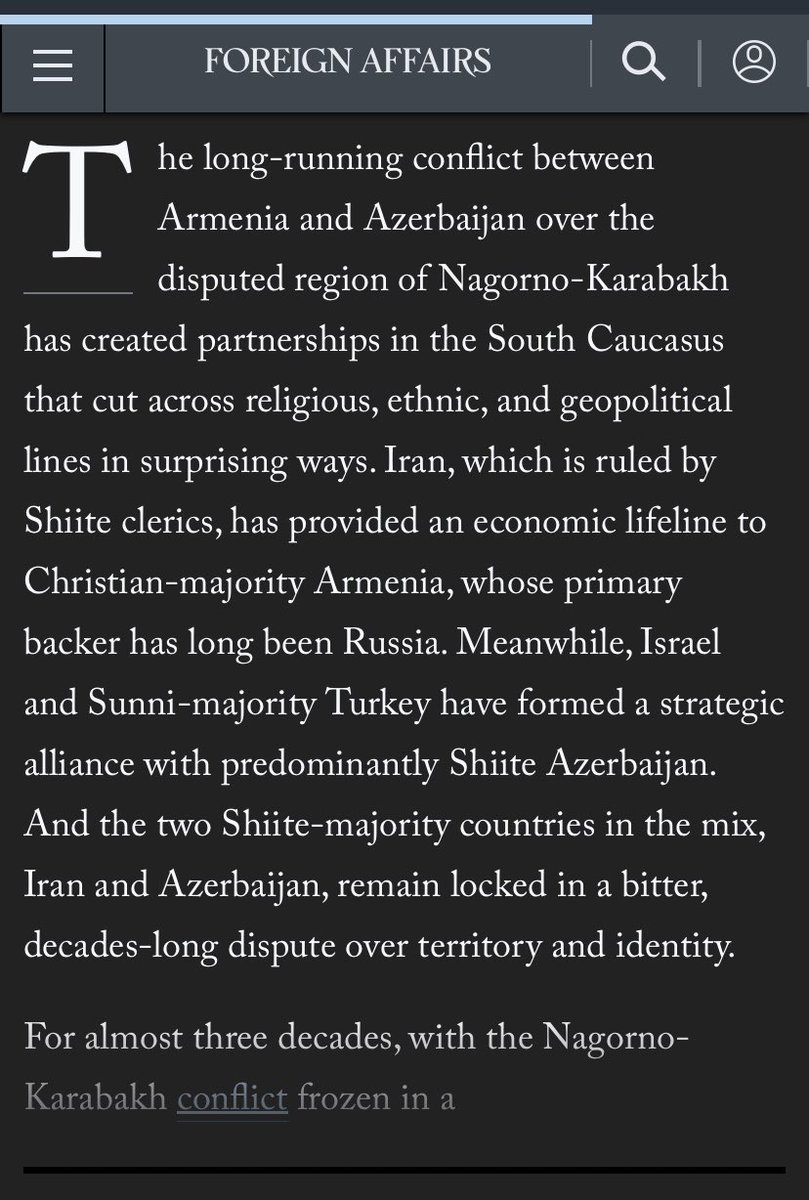
|
Or order from your favorite bookseller, using ISBN 9798985708424. Read all about it here! |

|
Tuesday, January 24, 2023
 Tuesday, January 24, 2023
Tuesday, January 24, 2023 Ian
Ian "Gaza Blockade" lie, Abraham Accords, Ahlam Tamimi, Antony Blinken, Area C, Jordan, Linkdump, Oslo Accords, Palestinian Authority, PMW, Regavim, settlements, Temple Mount, unintended consequenses, Yitzak Rabin
"Gaza Blockade" lie, Abraham Accords, Ahlam Tamimi, Antony Blinken, Area C, Jordan, Linkdump, Oslo Accords, Palestinian Authority, PMW, Regavim, settlements, Temple Mount, unintended consequenses, Yitzak Rabin
Palestinians are playing the long game on world stage – Israel could lose
The United Nations General Assembly recently approved a resolution calling on the International Court of Justice (ICJ) to render an opinion on whether the continuing Israeli occupation of the territories has become permanent, and in fact an annexation of the territories. In principle, the Court’s opinions are not binding, and its decisions cannot be directly translated into steps against Israel. However, in practice, the petition of the case to the ICJ is part of a broader Palestinian strategy, and in the present international climate is liable to have significant implications.PMW: The continuing lie of the “Gaza blockade”
In recent years, the Palestinians have adopted the practice of involving international institutions in their conflict with Israel. These efforts include their appeal to the ICJ on the legality of the separation fence, a push for the establishment of international commissions of inquiry after every military operation in Gaza, complaints to the International Criminal Court that led to a pending investigation of Israeli actions related to the conflict, and a drive to have Palestine admitted as a member state of various international organizations.
The Palestinian activity in international organizations is coordinated and aggregate. For example, the General Assembly’s recognition of the State of Palestine in 2012 provided the basis for the determination that the International Criminal Court has the authority to investigate Israeli actions related to the conflict. An ICJ decision that the Israeli occupation is illegal would serve as the basis for additional proceedings against Israel.
Developments in Israeli law are also liable to affect the legal ramifications of the ICJ proceeding. In 2004, it published an opinion that the construction of the separation fence in the territories was a violation of international law. In practice, no steps were taken against Israel as a result of that ruling. A significant factor in Israel’s ability to fend off the opinion was the fact that the Supreme Court had looked into the issue and concluded that the fence was legal under international law. In several places, the Supreme Court even intervened and ordered that its location be modified in order to comply with international law.
However, it seems that the Supreme Court’s willingness to impose international law on Israel’s activities in the territories is no longer as resolute as in the past. In recent years, the court has refrained from intervening in issues related to international law. If the Override Clause is enacted, the Court’s authority to review Israeli actions in the territories will be weakened even more, and the Knesset will be able to pass legislation such as the Settlement Regulation Law, which the Court struck down in 2020. In this situation, it is quite likely that international tribunals will pay no attention to proceedings in the Israeli Supreme Court and not view them as a reason to refrain from investigating the issues.
In 2022, United Nations officials and reports, many countries and their representatives, and the Palestinian Authority continued to perpetuate the lie alleging that Israel has applied a “blockade” on the “besieged Gaza Strip.”A child of Oslo watches the Tel Aviv protests
While the lie was commonplace and even often embellished by claiming that “Gaza is the biggest prison in the world,” statistics released by the United Nations Office for the Coordination of Humanitarian Affairs in the so-called “occupied Palestinian territory” (OCHA) reveal the truth.
According to the OCHA statistics, in 2022 there were 424,417 exits via the Erez crossing from Gaza into Israel. 14,909 exits were for Gazan patients, who were accompanied by 10,930 people, entering Israel to receive medical treatment. There were also 573 entries into Israel to visit imprisoned terrorists.
Alongside the entry of the Gazans into Israel, OCHA also reported that 74,096 truckloads of commodities entered Gaza from Israel via the Kerem Shalom crossing in 2022. According to the statistics, only 5% of the truckloads were carrying humanitarian products.
In addition to the 74,096 truckloads of commodities, thousands of trucks entered Gaza from Israel carrying fuel:
While statistics released by the Israeli Defense Ministry showed that from 2017-2021 Israel - incredibly - allowed 11,499 new vehicles into Gaza, the number of new cars that entered Gaza from Israel in 2022 has not yet been released.
The OCHA website further revealed that in 2022, in addition to the 424,417 exits from Gaza into Israel, there were an additional 245,145 exits from Gaza, via the Rafah crossing, into Egypt.
In addition to the movement of people, 32,353 truckloads of commodities also entered Gaza from Egypt through the Rafah crossing. All the commodities that entered Gaza from Egypt were for commercial use. No humanitarian goods entered Gaza from Egypt.
Yet as a child of Oslo, born and raised in the dark years of rampant terror in which parents lost friends and friends lost parents, in which the obituary sections drove home realities that were decades premature, I have to ask myself: Does the Supreme Court really fulfill these functions in the name of protecting democracy and civil liberties? If so, shouldn't its decisions to rein in government policies be devoid of political bias?
In Oct. 1995, then-Prime Minister Yitzhak Rabin's government pushed the Oslo B agreement through the Knesset by a 61-59 majority. It did so by promising members of Knesset, from a right-wing party, positions in the government in exchange for their votes. Where were the calls for reining in majority rule back then?
At the time, the left was perfectly happy to win by the slimmest of majorities, however it was achieved. This was the case even though the ramifications of the vote were severe. They did not only threaten civil rights but the physical lives and safety of hundreds of thousands if not millions of Israelis.
Ten years later, I spent the summer of 2005 in Gush Katif in the Gaza Strip. I witnessed firsthand what it was like for the people there when Ariel Sharon turned his back on everyone who voted for him and rammed the disengagement plan through, firing anyone in his government who dissented.
Yet for some reason, the Supreme Court, sans Justice Edmond Levy, decided that it was not its place to interfere. It stood by as the government sent soldiers to expel citizens from their homes, crushing any semblance of their civil liberties.
Sadly, we are still paying for this decision to this day, with Hamas now ruling the dunes where once our hothouses bloomed.
This two-faced approach proves that we should not blindly accept the rhetoric employed by the protestors. This controversy is not really about civil rights or the strength of Israel's democracy. It's about power. Political power and judicial power. It is about people who want influence over the future of the State of Israel even when the majority of the people chose not to elect them.
It's hard to contain the feelings that bubble up when I hear friends on the left who supported Oslo and then the disengagement talk about how the Supreme Court is the defender of civil rights in this country. The Supreme Court proved otherwise when it abandoned the people of Gush Katif. They proved that their own politics supersede their supposed commitment to upholding the civil rights of all Israelis, making this argument against the reform null and void.
Monday, January 09, 2023
 Monday, January 09, 2023
Monday, January 09, 2023 Elder of Ziyon
Elder of Ziyon 1949, Big Lie, international law, logical fallacy, negotiations, Oslo Accords, Palestinian Authority, peace treaty, Ralph Wilde, rewriting history
1949, Big Lie, international law, logical fallacy, negotiations, Oslo Accords, Palestinian Authority, peace treaty, Ralph Wilde, rewriting history
Neither United Nations Security Council Resolution 242, nor the so-called Oslo Accords, provide an alternative legal basis for the existence/continuation of the occupation. Indeed, the Oslo Accords are themselves violative of international law, because ‘consent’ to them by the PLO was coerced through the illegal use of force, and, relatedly, they conflicted with norms of international law that have a special non-derogable/jus cogens status (the prohibition on the use of force other than in self-defence, and the right of self-determination).
According to Wilde, the Oslo Accords were illegal because the PLO was coerced to sign them by Israel.
No one to my knowledge has made that claim, ever. Not during the Oslo process from 1993-2000, not during the second intifada, not afterwards.
The PLO itself certainly never made this claim; to this day, Mahmoud Abbas charges Israel with violating the Oslo Accords but he has not once said that they don't apply because the PLO was coerced
What next? Do we retroactively invalidate the Treaty of Versailles because the Germans lost World War I and therefore were subject to coercion if they didn't sign?
Wilde's illogic is remarkable. But he really tries to make it seem reasonable. In his more expansive article on the topic, he writes:
Given that much of international law operates on the basis of a fiction of sovereign equality despite de facto inequality, treaties between unequal parties are not necessarily invalid for that reason. But one red line is when the powerful party, as here, is subjugating the other party in a particular manner—through an illegal use of force—in a way that has so compromised the freedom of action of that other party when it comes to their consent to the agreement, that the agreement can be understood to have been “procured” through that particular form of subjugation. The Oslo Accords meet this test and are legally-void on this basis. Indeed, their procurement in the context of the occupation constitutes a manifest and egregious form of coercion prescribed by the equivalent rule of customary international law to the provision in the [Vienna Convention on the Law of Treaties] when it comes to invalidity.
This means that every case of occupation can never be ended through negotiations because the occupied party is by definition coerced into its agreement.
Wilde's bizarre argument brings up another question. Who determines, under his fantasy version of international law, that one party is being coerced? Normal people would say that it would be the coerced parties themselves. But if the PLO doesn't claim they were coerced to sign the agreements, and indeed make constant arguments that Oslo is valid and Israel is violating it, then how can anyone else possibly make that assertion as fact?
Apparently, Wilde thinks that his own opinion on what constitutes coercion outweighs that of the party he says was coerced! This is no longer the pretense of interpreting international law - this is an attempt to create international law based on what a single uninvolved anti-Israel academic thinks.
Beyond that, we have another problem. If Oslo was signed under coercion, then why didn't the PLO sign the proposed peace agreements from Camp David and Taba, when they were being pressured not only by Israel but by the world's only superpower at the time, the United States? How did Arafat resist that pressure but succumb to the much milder coercion of 1993? What changed - under an international law framework - from his being unable to have free will in 1993 and his freedom in 2000?
It gets better. If Oslo is retroactively illegal, then the Palestinian Authority created by them must retroactively disappear, and any agreements that it signed over the past 25 years are also meaningless, since it never existed. And since the UNGA-recognized "State of Palestine" is simply a renaming of the PA, then it must also disappear - and its signature erased from all the treaties it signed.
Wilde, for all his erudition and expertise, proves himself to be a fraud in this argument. He is clearly twisting international law to fit his own pre-determined conclusion.
And that should disqualify him from teaching anyone.

 Elder of Ziyon
Elder of Ziyon























.jpg)




